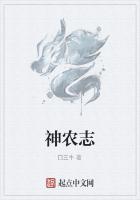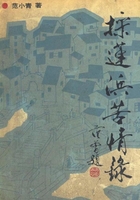1.George Orwell’s Life
George Orwell was born Eric Blair in 1903 into an upper middle-class English family which had a tradition of government administration in the British Empire。 He was in fact born in India, where his father was then working。He was sent to Eton, one of the most expensive boys'schools in Britain and one of those with most prestige, but instead of going on to university he followed the family tradition by joining the Indian Police Service and was sent to Burma。His fve years there led him to reject every aspect of imperialism and the brutality it could create in those in authority, and to feel closer to those who were oppressed than to those who oppressed them。
A similar sympathy and identification with those at the bottom of a social system led him, on his return to Europe, to travel around Britain and France, living on the road among the poorest groups of society and entering as completely as he could into their way of life。 It is true, of course, that he knew that because of his family background he, unlike them, could return to a different way of life when he wanted。He wrote about these experiences under the name of George Orwell, partly to protect his family from embarrassment and partly because he had never liked his own name very much。
In the next few years he worked briefly as a teacher in private schools and in a bookshop, but his most important activity at this time was his writing:novels, deions of his time in Burma and among the poor of London and Paris, and book reviews。 In 1937 he went to Spain to fight in the Spanish Civil War on the side of the Republic, with the forcefrom the United Marxist Workers'Party(POUM),until he was badly wounded in the neck and returned to England。 By this time his writing had made him well known in left-wing circles;he wrote as a socialist who was aware of some of the shortcomings of socialism and of the way that ordinary people, who should have been drawn towards socialism, were being turned away from it by the arguments and actions of some of the intellectual socialists。
During World War II Orwell worked for the BBC producing programmes for India and South East Asia, and as manager of a bookshop, as well as producing a lot of journalism。 This was mainly on political subjects, but he also wrote articles about everyday wartime life in London and a considerable amount of literary criticism。During this time he began to plan Nineteen Eighty-Four, before he started to work on Animal Farm, which was published in 1945.
Orwell's wife died while in hospital for a relatively minor operation before Nineteen Eighty-Four was published, so that she never saw the success and scandal it created。 There is a strong suggestion that earlier medical attention could have given her a chance of a longer life, but that concern over money meant that she did not consult a doctor in good time。Orwell equally neglected his own health, working on articles and reviews through attacks of illness and refusing to see a doctor。He had written an outline of the plot of Nineteen Eighty-Four in 1943.By the time he came to write the frst version of the novel, in 1947,neither world history nor the events of his personal life had made him any more hopeful about the future。He collapsed into bed for a month after writing this frst version until, after fnally consulting a doctor, he was sent to a sanatorium where his tuberculosiscould be treated。 As soon as he started to feel well, he began to write again, with a pen because the doctors had taken away his typewriter。
He worked on alterations to Nineteen Eighty-Four in the sanatorium, and as soon as he was able to leave, he got to work on the second version of the novel, although he was still so weak that he had to spend half the day in bed。 This fnal version was produced in 1948,and the year in which he set the novel was obtained by reversing the last two digits。The effort of typing the final version brought him near to physical collapse, and he had to enter a sanatorium again。
Orwell hoped that if he was willing to lead the life of an invalid there was some hope for him, and he planned to marry again and to go to Switzerland for his health。 He did get married(in a hospital bed, too ill to go to a registry offce),but Switzerland remained a dream;on 21st January 1949 his lung collapsed and he died, at once and alone。
2.The Background to Nineteen Eighty-FourTo describe writing as“Orwellian”means that it expresses a pessimistic view of a dull, uniform world where every aspect of life is controlled and organized by the State。 As Nineteen Eighty-Four was written when Orwell was already suffering from tuberculosis, the disease that killed him, it has often been regarded as the work of a dying man, written in disillusion with the present and despair for the future。This is misleading:the outline of Nineteen Eighty-Four(which was originally to be called The Last Man in Europe)had been planned five years earlier in 1943,before he wrote Animal Farm, the book for which he is probably best known。
Orwell had been reading Zamyatin's novel We, whosevision of an anti-Utopia was of special interest when he was planning his own, but many of the themes of Nineteen Eighty-Four were drawn from his own concerns and experiences。 During the Spanish Civil War he had seen for himself evidence of the falsification of news and the invention of false news, and he later described in an essay how“I saw history being written not in terms of what happened but of what ought to have happened, according to the party;this kind of thing is frightening to me。If a leader says of such-and-such an event that it never happened well, it never happened。If he says that two and two are fve well, two and two are fve。”
Another major concern was the way in which language was being twisted and corrupted for political ends。 In an essay entitled“Why I Write”,written in 1946,he commented:“To write in plain vigorous language one has to think fearlessly, and if one thinks fearlessly one cannot be politically orthodox”,and one of the themes running through Nineteen Eighty-Four is the way in which the State uses language to further political control over the people who speak it。
His alarm and disgust at the way some political writers of his time(particularly those who supported and defended Stalin's policies and actions)distorted language in their attempts to justify what Orwell regarded as unjustifiable led him, in Nineteen Eighty-Four, to invent the next logical step for a language twisted and corrupted for political ends:Newspeak。It is based on a theory held by many writers on language at that time, that thought is dependent on the words in which it is expressed and that therefore if a language does not possess words for certain ideas it will be impossible for the people who usethat language to hold those ideas。 The aim of Newspeak is that all ideas which do not follow the principles of Ingsoc will be impossible to hold, and to this end all the politically undesirable words and meanings are being surgically removed from the language。The aim, as Syme makes clear in the novel, is to achieve politically sound precision of language, so that, as he expresses it,“the vagueness and useless shades of meaning”of the old language will be destroyed, along with the works of the great writers of the past who used it。
To Orwell, who believed that anything important could and should be expressed in words which could be understood by ordinary people, the deliberate use of complicated language was one of the greatest sins the unconscious use of complicated language was even worse, because it meant that the user had lost all contact with the truth of what he wrote about。
Many aspects of wartime life in;London are incorporated in Nineteen Eighty-Four, for example, the deion of bombing attacks and bomb damage to the city itself and the news film of the boat of refugees being bombed。 The Ministry of Truth building in the novel was modelled on the London University building used during World War II by the Ministry of Information, and on the BBC's main building, which also seems to have provided the inspiration for the canteen smelling of cabbage and the singing prole women in this case, BBC offce cleaners。His wife's work at the wartime Ministry of Food, creating publicity to encourage the public to eat the“right”types of food, seems to have suggested the use of the short crisp slogans of Nineteen Eighty-Four。
The way in which the leaders of the nations who had won World War II met after the war to divide the world into zonesof infuence also fnds an echo in Nineteen Eighty-Four。 Orwell predicted in an essay that the world would be divided into three armed states, and although he hoped that the common people would combine to resist this he did not believe that it was likely。“The common people, on the whole, are still living in the world of absolute good and evil from which the intellectuals have long since escaped”,he wrote, and his Faith in the instincts of the common people and distrust of intellectuals is another element of Nineteen Eighty-Four。Winston not only believes that any hope for the future must lie with the proles, but goes so far as to tell Julia,“The proles are human beings。We are not human。”
In Eastern Europe as well as in the West, he had seen intellectuals betray the revolution by accepting the idea of a dictatorship if it would work to their advantage and give them power and privilege。 His concern and anger were expressed in Animal Farm, in which he used episodes from the Russian revolution told through the story of a farm where the pigs, who have led the animals'revolution, become as determined to keep and use power for themselves as the farmer whom they drove out had been。
Throughout his writing life。 Orwell worked to achieve a balance between public and private values, between creative work and necessary labour。His major concerns were public and political, yet he was equally aware of the importance of the individual's private life and the matters of everyday existence。One reason why he felt, as in Winston's comment to Julia quoted above, that the proles in Nineteen Eighty-Four remained human beings was that their private lives of emotional ties and individual concerns are their own, untouched by the controlling hand of the State。The members of the Partyhave privileges that the proles do not possess, but the Party influences and ultimately controls who they meet, how they spend their free time, who they marry, who they have sexual contact with, and their attitudes to all of these。 Orwell believed that the State should provide a social framework for its citizens but not dictate how their private lives are to be lived;if it does, they become, in a basic sense, less than human。
3.Nineteen Eighty-Four:the NovelBy setting his novel nearly forty years ahead of the time he was writing it, Orwell was giving a warning about the future。 As he constantly emphasized when writing about Nineteen Eighty-Four, it was not to be taken as a prophecy but as a picture of what could happen if not actively prevented。The sense of unease is established immediately in the first sentence by the clocks striking thirteen;this is later explained by the fact that a twenty-four hour clock is in use, but the sinister associations of thirteen, and the tradition that a clock striking thirteen is a sign that something is wrong, set the atmosphere from the beginning。The following paragraphs establish the harsh dullness of the physical conditions of life, the constant sense of being watched via the telescreen, and the overriding force of Big Brother's image。
The physical appearance of Big Brother very strongly suggests Stalin, as do many of the elements of his regime and his methods of keeping power。Goldstein's appearance is modelled on Trotsky, and in his role as the former subordinate whose differences of political theory later made him his former leader's enemy, there are also clear similarities with Trotsky(whose origin, like Goldstein's, was Jewish)。Yet thecharacter of Goldstein also draws on elements of the life of Andres Nin, who had been the leader of the POUM in Spain, with whom Orwell had fought。 Nin came to believe that Stalin had betrayed the principles of the revolution, and he was killed by Russian agents;as Goldstein was said to have done, he left a document setting out his political beliefs and principles。
Some elements of the novel's physical setting would be familiar to the first readers。 Others(those invented by Orwell)are almost always sinister in meaning if not in name:the telescreen, Ingsoc, Hate Week, the Thought Police, Airstrip One, etc。The names of the four giant Ministries prepare the reader for the later account of Ingsoc's distortion of language, since each Ministry is really concerned with the quality directly opposed to its name。Some of the nightmare quality of this society is communicated by Winston's knowledge, as he starts to write in the diary, that although there are no laws any longer he will, if caught, probably be put to death for doing something which is technically legal。
Winston himself is clearly established from the beginning as an unheroic figure;he is thin and frail, on the way to middle age, and has a leg ulcer(we later discover that he has false teeth and is subject to coughing fits)。 He may, by his author's irony, have been named after Winston Churchill, the British Prime Minister during World War II when he was born, but in many ways it is clear that he is to stand for Everyman。
He is presented as a man from an earlier age, old enough to have a vague memory of the distant world when he was a boy and to respond to objects from an earlier era(the“smooth creamy pages”of the diary, the nib-pen which hefeels the diary deserves, and the“soft rainwatery glass”of the coral paperweight)。 His only memory of unselfish and devoted love from one human being to another comes from his childhood, and the culture on which the world of his childhood was based is so far removed from the one in which he now lives that when he dreams of Julia tearing off her clothes in an act of sexual(and therefore political)defance, he wakes up with the word“Shakespeare”on his lips。
Because Orwell wants to show him as a representative as well as an individual, it is important that, for example, Winston is shown genuinely to respond to the Two-Minute Hate and not as essentially different in this respect from other Party members, as would happen if he were shown from the beginning of the novel as very strong-minded or with his own clearly formed political ideas。 At the beginning, Winston's rebellion consists mainly of a dislike of the physical dullness of the world in which he lives and a vague feeling that things are not as they should be, and his diary enables him to express his unease without having to formulate the principles which he feels Ingsoc has violated。His acts of rebellion against the society in which he lives(buying and writing in the diary, having an affair with Julia, visiting the prole area of the city, renting the room from Charrington, and the most openly political making contact with O'Brien)are, in the last analysis, less important than the rebellion of mind and feeling from which they all spring, and it is for this that he is punished。As he himself refects in the frst chapter:“Only the Thought Police mattered。”
His contact with Julia leads him to put into words ideas critical of the society in which they live, which before hadbeen little more than vague feelings of unease“the mute protest in your own bones”,as he describes it—even if she hardly listens to him when he explains these ideas to her and does not understand their signifcance, as when he tells her he has proof of offcial falsifcation of the news about Jones, Aaronson and Rutherford。
Knowing Julia makes him—feel that he is no longer, in the words of the original working title,“The Last Man in Europe”,but also makes him realize clearly that he was doomed from the moment he started writing in the diary。 So an act of madness such as renting the room above Charrington's shop and continuing to meet in it(in direct contradiction of Julia's dictum that no meeting-place is safe more than twice)can be seen as an attempt to make the most of the moment before the inevitable blow falls, rather than a seriously-held hope that he can escape punishment for such a flagrant offence。His last words to Julia in the moment before the Thought Police arrest them are:“We are the dead。”
His earlier impression of O'Brien as a man of intelligence who has the same doubts about Ingsoc as himself, and the conspiratorial feeling that this creates, are so strong that he trusts O'Brien without question。 Both before his arrest and when imprisoned, this trust mirrors something of the emotional dependence which a loyal member of Ingsoc should feel for Big Brother, so that in a sense O'Brien's purpose in their interviews in Miniluv is to turn Winston's love for himself into love for Big Brother。One of Orwell’s most important points is that mere obedience is not enough:Winston must achieve a moment of genuine love for Big Brother, just as earlier he achieved a moment of genuine hate for Big Brother’s enemy。In order to feel this love Winston has to reject, and to admitto himself that he has rejected, all feelings of love and loyalty to anyone else。 In the early stages of his time in Miniluv, although he suffers degradation, torture and humiliation, there is still some integrity inside him。But fnally, threatened with what is for him the worst thing in the world, he betrays Julia by begging for her to suffer in his place, and by betraying her he betrays himself。After this, as he himself reflects, something is killed in his own heart:“burnt out, cauterized out”。He has lost something vital to himself and is a shell of a man, no longer any possible threat to the State or to anyone else。
Julia is younger than Winston and does not have his memories of the world before Ingsoc changed it。 Her rebellion is more instinctive and immediate than his, and she is able to live within the State's system because she has stronger feelings of self-preservation and much greater self-confdence。She is not at all interested in the theoretical basis of rebellion;she starts to listen dutifully to Winston reading“the book”but soon goes to sleep。
She is, however, much better than Winston not only at practical arrangements(for making contact, hiding signs of their meetings, etc)but also at understanding instinctively the underlying reasons for some of the Party's policies, particularly those connected with sexual matters。She understands that the reason for the Party's sexual puritanism is that by making the sexual act either a political duty between husband and wife(as it was for Katherine)or for a man a furtive and joyless encounter with a prole prostitute, the Party can use sexual frustration and the resulting hysteria for its own purposes。Therefore any enjoyable act of lovemaking freely entered into by two Party members(as in the first sexual contact betweenWinston and Julia before there is any emotional contact between them at all)is in itself a political act。 Winston begins as a rebel with his mind and feelings and progresses to physical acts of rebellion via Julia's infuence。She has been a rebel with her body all her adult life and has learned to survive in ways Winston does not have the capacity for, but both of them believe that“they[the State, in the form of the Thought Police]can't get inside you”,and both are proved wrong。
The other characters in the novel are sketched in more lightly。 Perhaps the most interesting, and potentially the most complex, is O'Brien。On his first appearance Orwell, through Winston, points up two contrasting strands in his character:a coarse brutality, emphasized by his physical appearance, and the delicacy of gesture which Orwell compares to that of an eighteenth-century nobleman。It is the combination of these qualities which is so dangerous for Winston;O'Brien has the sensitivity to be aware of Winston's secret disloyalty to the State, and t he force and ability to indict pain by which he makes Winston suffer for it。He works on Winston in Miniluv with intelligent and fanatical devotion until Winston can be released back into society, cured forever of the infection in his mind(as O'Brien sees it)which prevents him from loving Big Brother。O'Brien is an example of the type of intellectual from whom Orwell feared the worst:he would use his energy and intelligence to preserve and support a dictatorship whose sole aim was to keep power。
Syme's intellectual powers have also been corrupted by the State, although his interests are more academic and he does not possess O'Brien's force。 Yet he still sees too clearly and speaks too plainly for his own safety, and, as Winstonrealizes at an early stage, is marked down for vapourization。
It is more of a surprise when Parsons also appears as a prisoner in Miniluv。 Winston had assumed that his limited intelligence combined with his devoted orthodoxy of political views would keep him safe as a valued worker for the Party, but he is doubly betrayed—by his unconscious mind and by the daughter whose skill at discovering traitors he was so proud of—and he suffers the same fate as the others。The image has been built up of a world where no one is to be trusted。People who seem innocent of all deceit, like the old prole junk-shopkeeper, turn out to be members of the Thought Police and are most dangerous because they were never suspected。Winston's visits to the prole quarter, which he thought(once the patrols were avoided)to be a place of safety, prove fatal to him and to Julia。
Considering Winston's belief that“if there is hope, it lies in the proles”,a theme which runs through the novel and which we are to understand as coming from Orwell himself, the proles play very little part in the novel。 In some cases, like that of the woman singing as she hangs out her washing, they are merely in the background to point a contrast with the lives and behaviour of the members of the Party。When Winston makes an extended visit to the prole quarter and attempts to ask the old man in the pub about his memories of his youth, the response is confused and uninformative。Orwell describes Winston's hopes for the proles as“a mystical truth and a palpable absurdity”,and from the evidence in the novel, the latter part of the phrase is the more accurate deion。Yet Winston needs to feel that there is some hope somewhere, and certainly there is none in the harsh world of fear and drabness in which Party memberslive。 So the proles become for him not just a romantic hope for the future, but the only hope of all。
In fact, the novel shows no hope, and certainly not for Winston。 He betrays Julia and his feelings for her, and thus betrays an innermost part of himself which, once lost, can never be recovered:his personal emotions and his individual integrity, which, for Orwell, should be out of the reach of any powers of the State。Winston is no more heroic under the pressure of Mintluv than he was earlier。At the end he is seen in the Chestnut Tree cafe, where he himself had watched other men who had been broken by the State。Here he fnally admits to himself that all rebellion is over and the struggle is fnished。Orwell's warning is clear:Winston, with all the force of the State against him, comes not merely to accept that he is powerless against it, but actively to welcome his own defeat:he loves Big Brother。
4.Orwell's Work TodayOne of Orwell's Newspeak vocabulary(Newspeak itself, Big Brother, doublethink)has entered the English language;certainly his vision of a drab totalitarian future has entered the general consciousness, although it is difficult to know whether his warning has been fully understood。 He warned of a possibility for the future, to be resisted, rather than an inescapable fate。Orwell always attempted to describe political reality as he saw it。As he wrote at the time he was working on Nineteen Eighty-Four。“Most of us have a lingering belief that every choice, even political choice, is between good and evil, and that if a thing is necessary it is also right。We should, I think, get rid of this belief……In politics one can never do more than decide which of twoevils is the lesser。”Orwell's aim was to show the evils as clearly as he could, in order that his fellow human beings could make their decision, and therefore their choice。















